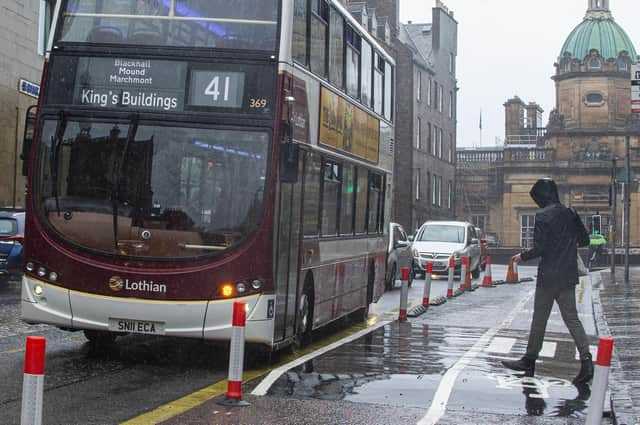Edinburgh's Spaces for People scheme triggers code red for calamity at council – John McLellan


As reported in the Evening News this week, the council’s internal audit has put the emergency road and pavement alterations projects in the red “significant improvement required” category, which thousands of residents have been telling the SNP-Labour administration for months.
While acknowledging problems with implementing emergency road safety measures in lockdown, it still identified “significant and moderate control weaknesses” in project management and governance, and in financial and budget management. In other words, the Scottish government threw the council £5m and it had no idea if it was money well spent.
Advertisement
Hide AdAdvertisement
Hide AdThe issue, as has been well aired over the last 16 months, is the administration didn’t see this as a temporary emergency response but an opportunity to embark on a citywide “try and modify” experiment for permanent change. Public protest was the inevitable consequence of a reliance on enough people kicking up a stink to trigger the “modify” phase.
It was even admitted this week that advice about legality was only sought from the council’s legal team once it was clear public anger had reached the stage of court action.
So, what looks like mismanagement in the normal context of infrastructure planning was in this case a project management tool.
But the audit also reveals something which wasn’t apparent last summer as objections began to mount in places like Comiston; the public survey last summer wasn’t to identify problems but had “the objective of obtaining public views on what other potential Spaces for People initiatives could be implemented”.
Advertisement
Hide AdAdvertisement
Hide AdNo wonder, then, that no risk management process was implemented because this suggests the administration was so convinced of its own righteousness that calling a halt wasn’t in the plan.
And so it went on at Tuesday’s committee discussion, with barely a flicker of contrition for the anger and disruption the schemes caused, just a rueful reflection that communication could have been better.
There was an admission that some pavement alterations weren’t good for visually impaired people, and even a suggestion that disabled people’s concerns about parking were either misplaced or wilful because blue badge holders should know they can park anywhere. Never mind that some people were forced to cross downhill cycle lanes to reach their vehicles.
Officers admitted they were “acutely aware” people felt their voices were not being heard, unless they were members of active travel specialists Sustrans or the Spokes cycling pressure group, in which case they weren’t just being heard but dictating the programme. But the best that can be said from Tuesday is public consultations will take longer in future… and then presumably the council will get on with what it wanted to do in the first place.
Advertisement
Hide AdAdvertisement
Hide AdAnd at what cost? The most damning finding is that having committed to keeping these schemes for another 18 months of experimentation and irritation, the report says there is “no clear strategy” for working out the cost of either scrapping them or making them permanent, and no idea how to meet significant exit costs. But is anyone in the administration really that bothered?
Code red for chaos, catastrophe or cynicism. Take your pick.
John McLellan is a Conservative councillor for Craigentinny/Duddingston
A message from the Editor:
Thank you for reading this article. We're more reliant on your support than ever as the shift in consumer habits brought about by coronavirus impacts our advertisers.
If you haven't already, please consider supporting our trusted, fact-checked journalism by taking out a digital subscription.
Comment Guidelines
National World encourages reader discussion on our stories. User feedback, insights and back-and-forth exchanges add a rich layer of context to reporting. Please review our Community Guidelines before commenting.
